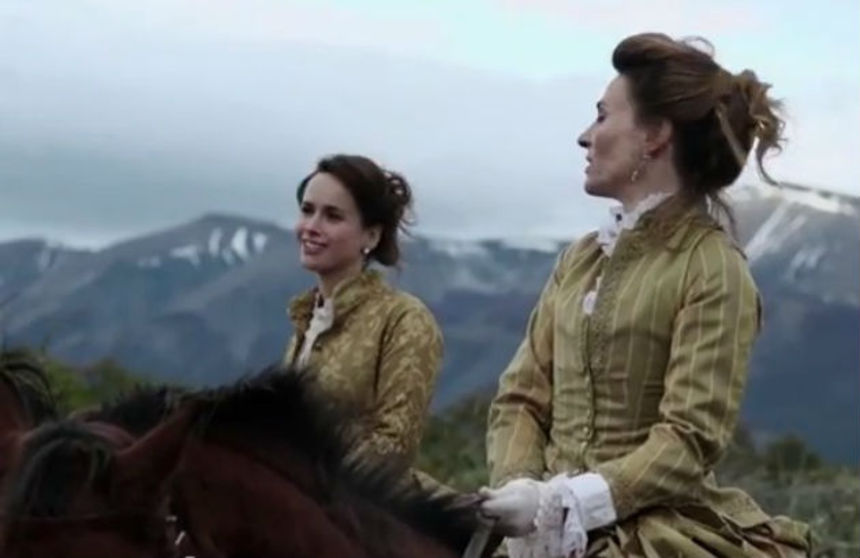Review: PATAGONIA OF DREAMS Gets The Period Right, But The Looks Wrong

Chilean cinema has been the talk of the town in film festivals lately.
That's notably the case since Sebastián Silva managed to make not one, but two films with Michael Cera, as well as the selection of Pablo Lorrain (director of No, the first Chilean Oscar nominated film) to helm a new remake of the classic crime flick Scarface. That's in addition to the international appeal and growth of the films of Ernesto Díaz Espinoza, especially due to the antics and masterful kicks of Marko Zaror, and the new festival darling that came out of Sundance this year, To Kill a Man.
But we tend to forget there are movies that stay out of festivals and international release, and that doesn't mean the film is only relevant to Chileans. (The newest documentary out in Chilean theaters now, Propaganda, is about the recent presidential elections here, and it was chosen in the latest Visions du Reel Festival, based in Switzerland, so that's a subject that now seems to be universal right.) But it may be the movie wants to be something artistic and great, and maybe it applied to many festivals, but it was never chosen in an important one because it was ... somewhat mediocre.
That is, I believe, the case with Patagonia of Dreams, a film that's serious in its themes and wants to be profound in its script, but doesn't manage to become anything near artistic, mainly because of its awful camera work and cinematography, which makes it look more like a comedy sketch than an historically accurate movie. Now, I don't mean that historical movies should have a fixed set of camera movements, as well as a look, but when the movements of the camera actually come against the natural thing to do for the scene to be better, you need to think twice about the edge you're giving to your 'hand-held camera when I really shouldn't have a hand-held camera' theory.
The plot is based on the historical diary of the protagonist, Chantal, the daughter of French immigrants in Argentina who suddenly decide that their family must live in a new business he's planning to have in the Patagonia. Patagonia is one of the coldest and most southern locations on Earth, as well as being divided and continuously disputed between Argentina and Chile during the years in which the movie is set (the late 19th century).
Chantal obviously doesn't like the idea, and as it's supposed to happen, she quickly falls in love with the land, its clear sky, its mountains and the cold that seems to always linger in every limb of your body. If this movie has anything good in terms of the visuals, it's how it shoots its landscapes; the colours of the sky and the land are preciously detailed and beautiful on their own, but whenever the film wants to shoot some plot, the camera moves around awkwardly, trying to be different, zooming in and out, as if it were a film made in the 70's, or by Quentin Tarantino.
Chantal gets to know an indigenous man; at first she seems reticent to know or even shake hands with him, but she later befriends him in a time of need. That's because the day before departing Buenos Aires, she gets pregnant by her fiancee, who promises to save her from the clutches of his parents's decisions. But he never appears. He later shows up in the Patagonia due to military reasons, and the entire film seems to just drag on the revelation of the son as his own.
She also meets a German painter and naturalist who lives with the indigenous man, as well as claiming a bond with the girl in terms of friendship and a never-revealed love relationship. The elements here may seem mildly interesting, and they are at times, but the film lingers too long on the racism and plot points that have either no resolution or no weight on the final decisions made. Also, again, the film is shot very poorly and with little imagination, and at times way too much imagination for it to be watchable.
If you know Spanish, it could be a good time waster, as well as background noise while you're doing something else, but right now the only way you can see it is in cinemas, and I certainly wouldn't pay to see this (even if I did, to write this review for you). The film is playing in Chile on few screens, including the National Cinematheque, and is in the Official Selection of the Chicago Latino Film Festival playing right now.







